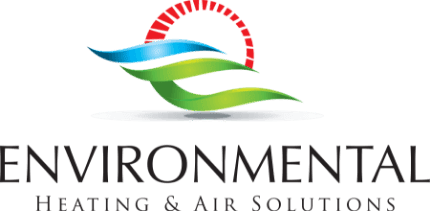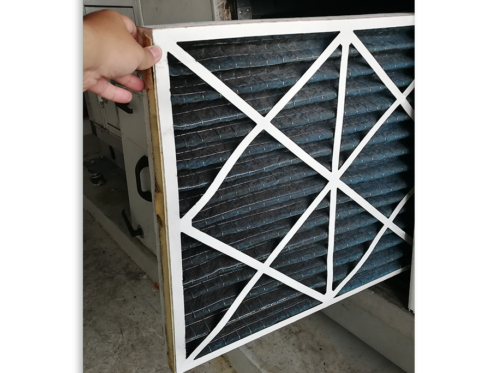HVAC filters, which are also called furnace filters or AC filters, are used to keep particulates out of your heating and cooling system. A common mistake is not changing these filters often enough, and this happens because people just forget and many do not realize the importance. With that in mind, let’s explore the industry rule of thumb and how to know when and why to clean or replace your filters.
Cleaning vs. Replacing HVAC Filters
Whether you should clean or replace your HVAC filters is a choice that you make at the time of purchase. Washable HVAC filters are reusable and can last five to 10 years or even longer in some cases. They cost more up front but can end up costing less in the end. Most consumers opt for disposable HVAC filters, which cost a lot less but have an expected lifespan of just a few months at best.
What Happens If You Clean a Disposable HVAC Filter?
Cleaning a disposable filter is never a good idea. One way that people clean them is with a vacuum, which will remove the dust on the external surface and make the filter look clean. However, HVAC filters are designed to trap particulates, and vacuuming cannot remove the embedded particles. It may make you feel better because of the way the filter looks, but the filter will still be clogged, thus underperforming. Washing them with water is an even worse idea. Moisture will be trapped in the filter, which will not dry fully. The filter will be even more clogged by the droplets, and the moisture can even breed mold in your ductwork.
What Are the Benefits of Cleaning/Replacing Your HVAC Filters on Time?
HVAC filters are not intended for the purposes of air quality. They are intended to keep your HVAC system clean by keeping particulates out, and even a dirty filter will accomplish that to a degree. The problem is static pressure, which is the air pressure in your HVAC system. As your HVAC filter becomes more clogged, pressure rises and airflow decreases. Regularly cleaning or replacing your filters prevents that from happening and thus lowers your monthly bill, reduces wear and tear on the system and extends the life of the equipment.
Three-Month Rule
The general rule in the industry is that you should replace your HVAC filters every three months, and many of the filters available on the market make this recommendation on the products themselves. Be mindful that just because a filter looks clean does not mean that it necessarily is, which is why you want to clean or replace your HVAC filters four times a year at a minimum.
Visual Inspection Each Month
That said, we do not advise simply relying on the rule. It’s based on the average household and filter, but each home is unique, and products can vary as well. What we recommend is visually inspecting each of your HVAC filters each month. If you can see dirt on the surface, then it’s time to either clean the filter or replace it, depending on which type you have. Remember that if you can see dirt on the outside of the filter, that means that the filter media is saturated.
Washing Your Electrostatic HVAC Filters
Vacuum the filter to remove as much of the external dust as possible, but be mindful that vacuuming alone is not enough. Depending on the particular filter and how dirty it is, rinsing it with a garden hose may be good enough. A deep clean, however, is preferred. To do this, use one part water and one part white vinegar and soak the filters for an hour. It is very important that your HVAC system be off while the filters are out. It is also very important that the filters be completely dry before reinstalling them. Therefore, most homeowners will want to have two sets. When your filters are dirty, you can swap in the clean filters and take your time with those that need to be washed.
Extending the Life of Your HVAC Filters
Three months is a limit that you should adhere to whether you use disposables or washables. If you are replacing or cleaning them more frequently than that, there are four key points to consider.
Filter Type and Quality
Not all HVAC filters are created equal, and low-quality filter media can become saturated very quickly because it lacks the surface area of the better products. However, make sure to purchase filters that are appropriate for your system. A MERV rating between 6 and 8 is usual. If you choose a higher MERV rating, it will have the same effects as running your system with a dirty air filter.
Dust
Dust in the home is the primary reason why filters clog, and while dust is unavoidable, frequent filter replacement or cleaning can indicate inadequate dust control. It is recommended that you do an extensive dusting at least once a week. Dust each room from the ceiling to the floor, and then, vacuum using a HEPA filter in order to ensure that most of the dust is removed from the home.
Pet Dander
It comes with the territory that people with dogs and cats are going to have to replace and clean their HVAC filters more often. If pet dander is your problem, you can try to wash and groom your furry friend more frequently, and you should do all of that outdoors. Depending on your particular pets, though, no additional effort may prevent the dander that is clogging your filters. This is a scenario where it is really easy to make an argument for electrostatic HVAC filters. It may require an investment of $100 to get a pair of filters for each intake, but they will easily pay for themselves over the next decade.
Poor Indoor Air Quality
Dust and pet dander are two core components of indoor air pollution. Mold is another. You may want to consider a whole-home air purification system. In addition to improving your indoor air quality, it will help to protect your HVAC equipment and extend the usability of your HVAC filters.
Cleaning Your Ductwork
Even if you use high-quality HVAC filters and change them out as needed without fail, dust will accumulate in your system and particularly your ductwork. One reason to schedule a seasonal tune-up is that the HVAC technician will clean your equipment. As for your ductwork, it has to be cleaned separately using specialized equipment, and it is generally recommended that you schedule that about every three years or so.
Your Local Heating and Air Conditioning Pros in Roseville
Environmental Heating & Air Solutions has served Roseville and all of Northern California for more than a decade. Homeowners throughout the region count on us for heating and cooling inspections, installations, maintenance and repairs. We also provide a full range of indoor air quality services, including air purification, ventilation, air sealing, duct cleaning and carbon monoxide detection. Our company also has expert licensed plumbers on staff who specialize in water leak protection and install all manner of water heaters, including traditional tank systems, tankless and hybrid heat units. Call Environmental Heating & Air Solutions today or contact us online to learn more about our services or to schedule an appointment.

